Maracaibo Sinks Under Overflowing Sewage
As if Maracuchos didn’t have enough already: constant blackouts, non-existent garbage collection service, extrajudicial executions and now, overflowing sewage, all under the not-so-watchful eye of chavista mayor Willy Casanova.


Photo: Mario Pérez
In 2016, while I was an intern in a Zulian newspaper, I heard the chief editor angrily talk about a community affected by overflowing sewage. He said that he wanted to open the newspaper the next day saying that the neighborhood smelled like shit, “but we can’t go crazy here.”
If he had the same idea today, the headline would be “Maracaibo smells of shit,” because almost every area in the city is affected by this issue that’s ignored by the authorities.
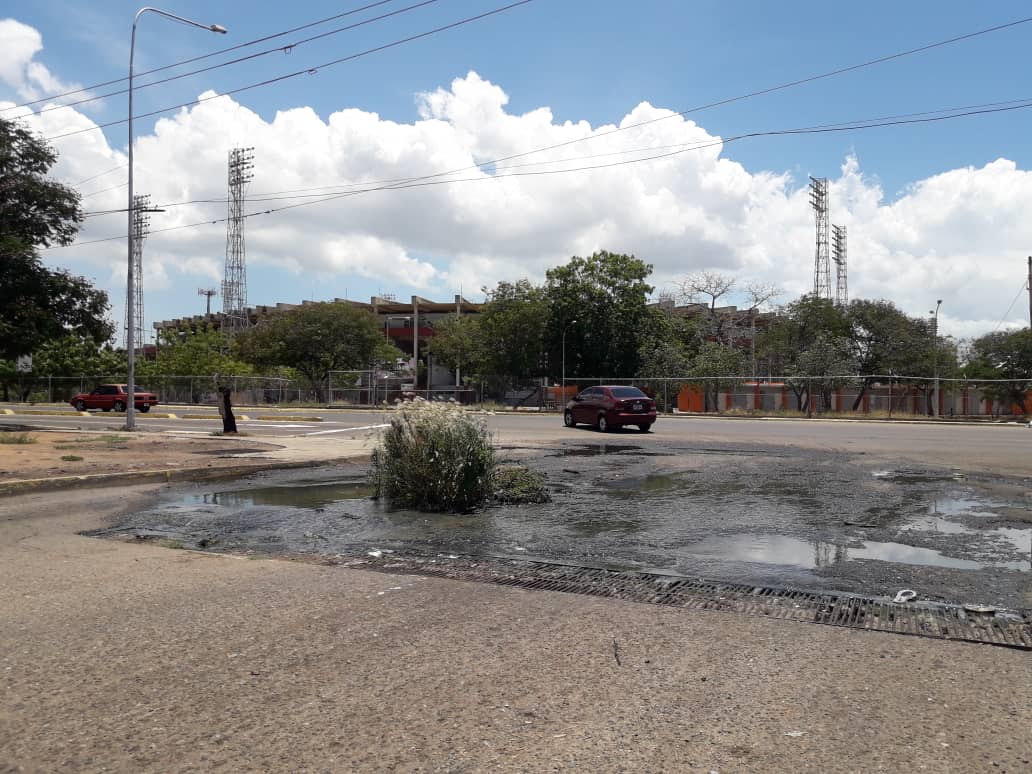 Photo: Mario Pérez
Photo: Mario Pérez
Sewage has been a problem for many years and thousands of Maracuchos have to live with it, due to the city’s disastrous sewer design. In recent months, the situation has gotten much worse and the stories chronicling this tragedy are dramatic: children and elderly citizens getting hepatitis, dengue, diarrhea or scabiosis; people who say that putrid water had come out of the shower as they bathed; folks who can’t leave their homes because sewage has reached the main door, forcing them to build stone paths to go out.
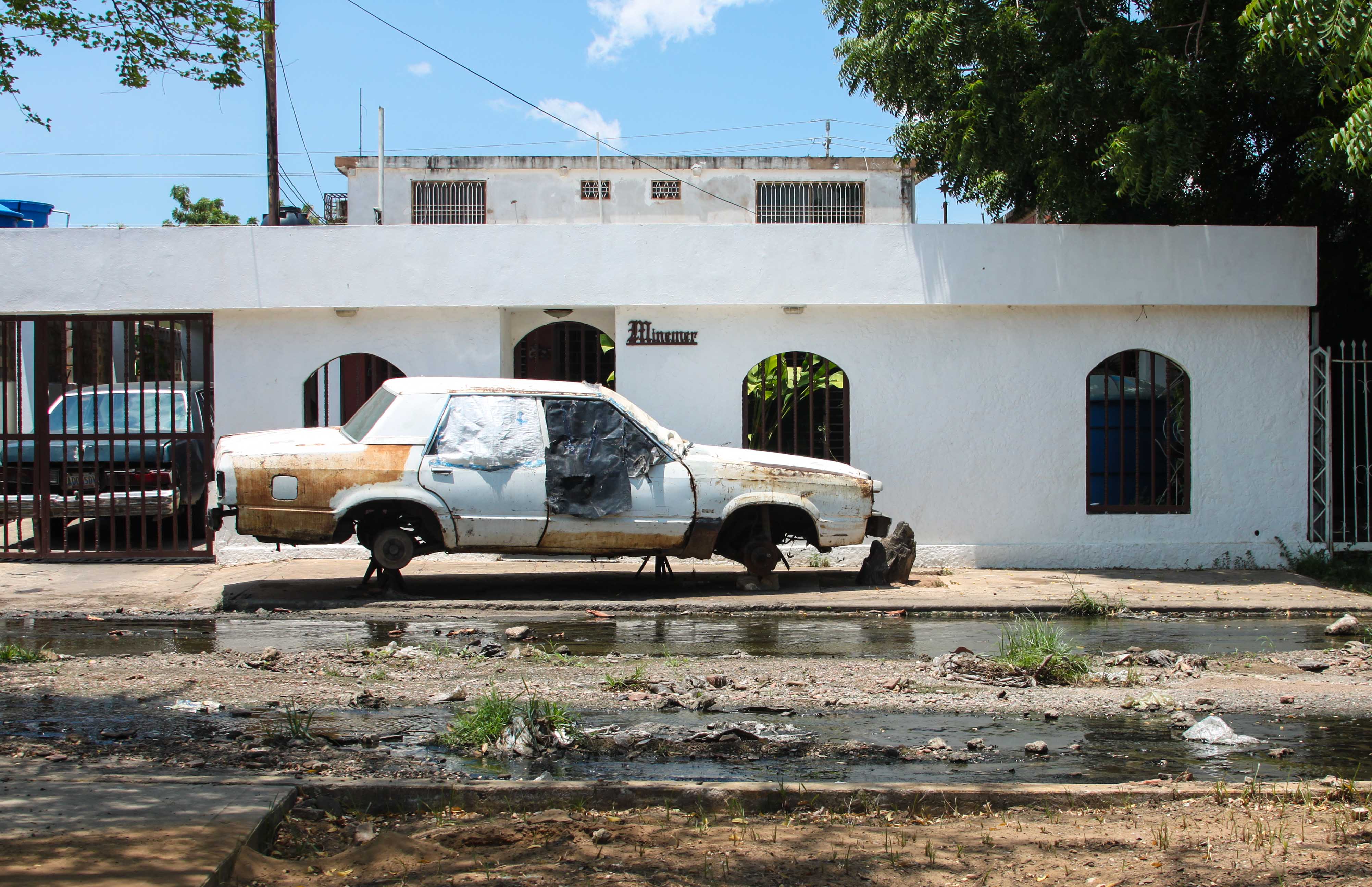 Photo: Mario Pérez
Photo: Mario Pérez
“The smells are unbearable. I just underwent surgery and this is unhealthy, a threat to neighbors,” said Flor Ávila, who lives in the Pueblo Nuevo sector, during an interview in June for the TV show Zulia en Caliente. “This can’t wait because we have an essential right to health, to fresh air and to get out of our homes, because we were trapped yesterday: the house was completely isolated by overflowing sewage.”
“This is depressing, horrible,” said Yolanda Godoy, another neighbor in the area. “The smell is terrible and it reaches the kitchen. We have to close doors and windows to try and placate the smell a bit.”
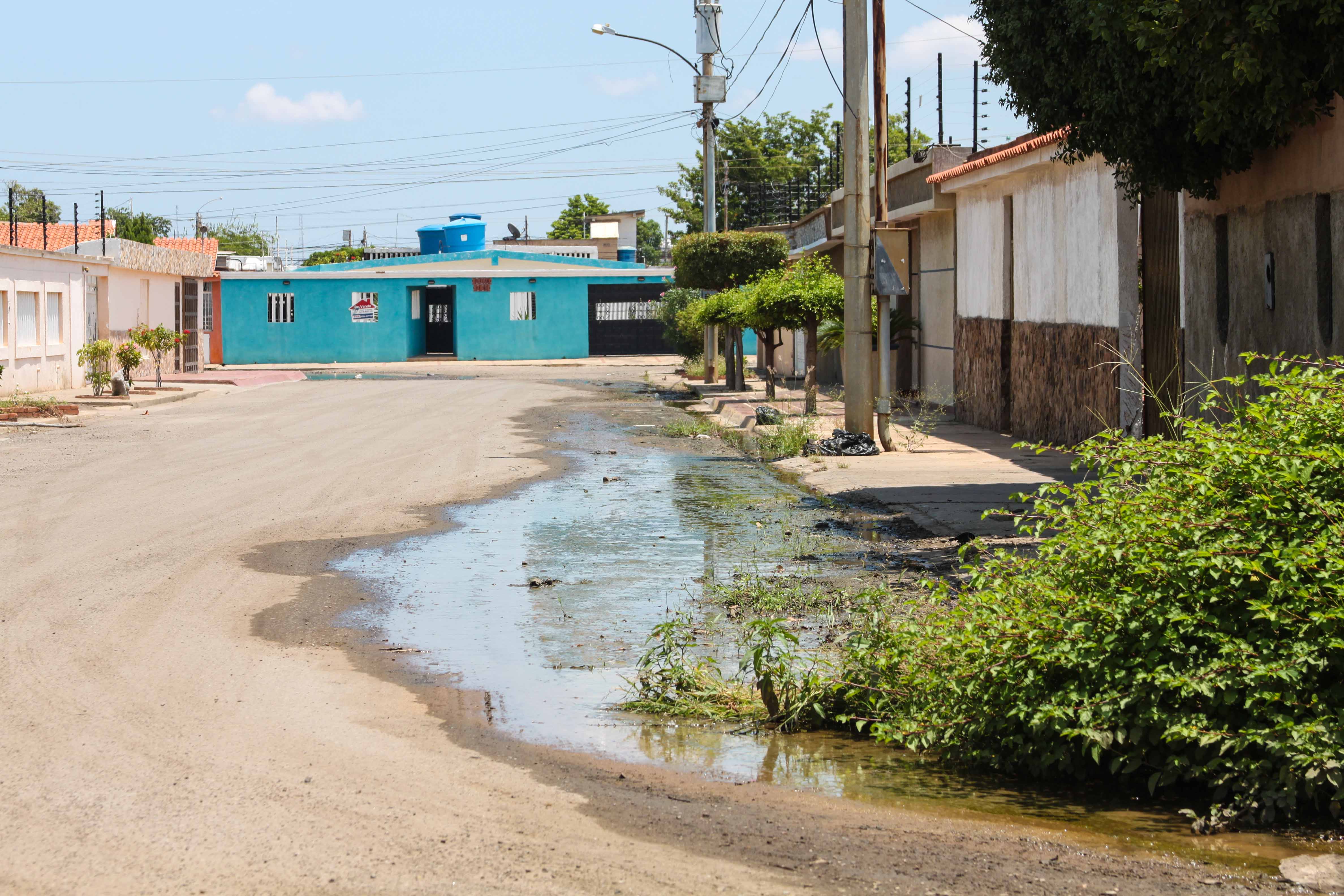 Photo: Mario Pérez
Photo: Mario Pérez
But this situation doesn’t only affect neighborhoods or slums: it reaches public places too. This is why Sabor Zuliano, a popular restaurant in the region, had to shut down and, in July, patients of Maracaibo’s University Hospital were moved out of the building. Similarly, shop owners in Los Plataneros, a popular market downtown where people can buy plantains for a good price, have denounced more than once how they’ve been exposed to diseases, with the overflowing sewage.
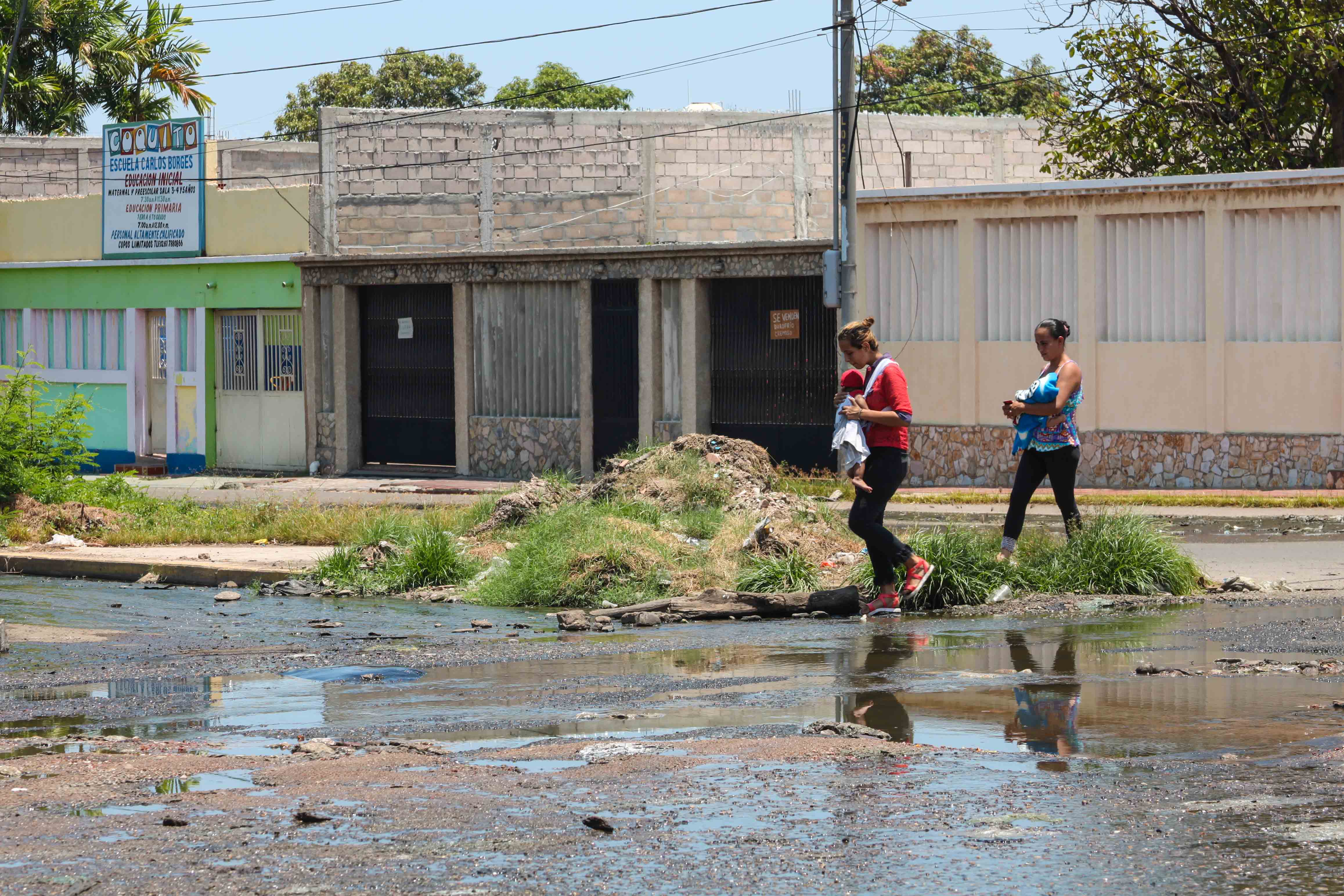 Photo: Mario Pérez
Photo: Mario Pérez
Mayor Willy Casanova has made a habit of repairing some of these sewage leaks, recording and photographing his workers, to set up deceitful press releases about how neighbors were “pleased” (although the issues reappear in the same places). These campaigns are published under the name “Maracaibo reborn!” and we wonder what Casanova means by showing a Maracaibo without sewage leaks, without garbage and with fully functional public services: a city that doesn’t exist.
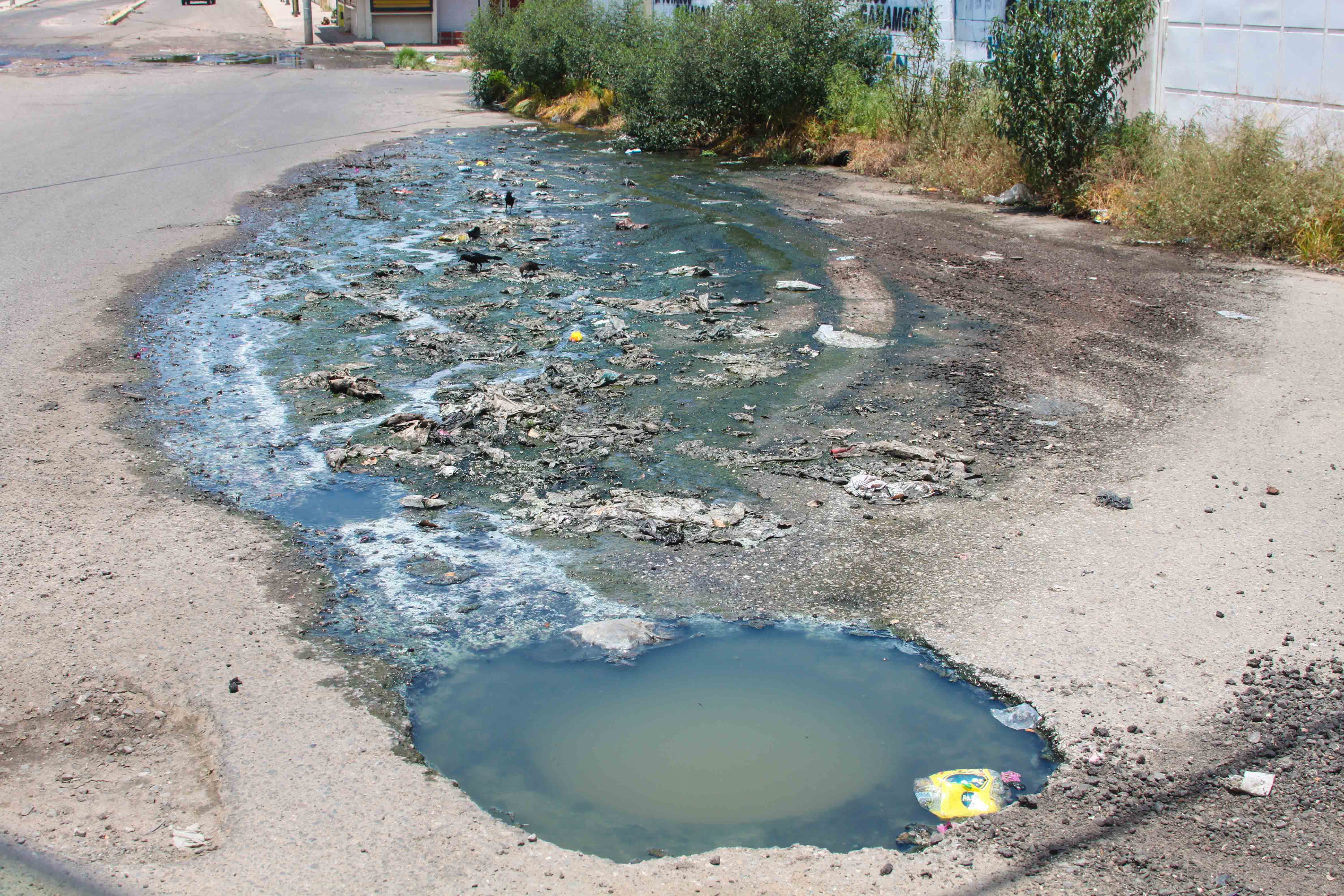 Photo: Mario Pérez
Photo: Mario Pérez
This sickening show joins others in Zulia’s capital, like non-existent public transport, garbage collection issues, extrajudicial executions and power outages.
“Communism can’t be studied, it must be lived,” said Venezuelan comedian Claudio Nazoa, and what a tough lesson that’s been under the Maracaibo sun.
Caracas Chronicles is 100% reader-supported.
We’ve been able to hang on for 22 years in one of the craziest media landscapes in the world. We’ve seen different media outlets in Venezuela (and abroad) closing shop, something we’re looking to avoid at all costs. Your collaboration goes a long way in helping us weather the storm.
Donate




